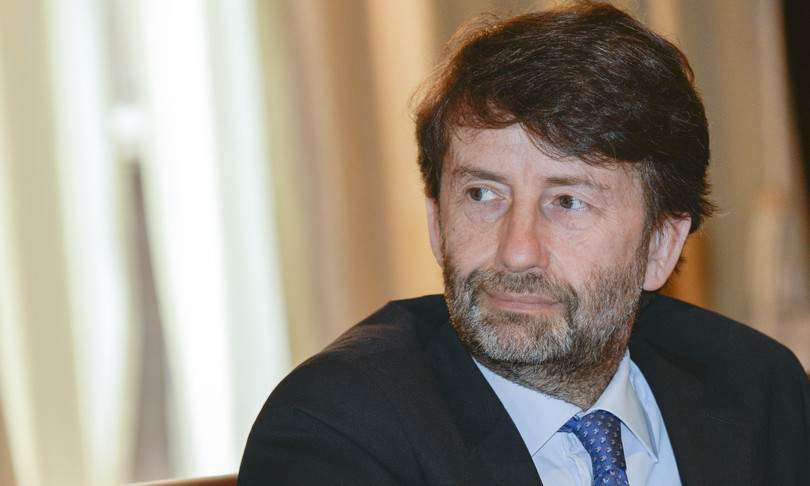Franceschini also intervenes on De Pasquale: "eligible executive and dispelled all doubts"
After the highly disputed appointment of librarian Andrea De Pasquale, director of the National Library in Rome, to the post of director of the Central State Archives (there is debate about his competencies but especially about his precedent regarding the acquisition of the Rauti fund by the National Library), the minister of culture, Dario Franceschini, also intervened to explain the reasons for the appointment to theAssociation among the Families of the Victims of the Bologna Station Massacre. Franceschini responded to a letter sent to him by Paolo Bolognesi, president of the Association (who had also sent the same text to Prime Minister Mario Draghi), who strongly criticized De Pasquale’s appointment precisely because of the precedent of the Rauti Fund. According to Bolognesi, such an appointment, the missive reads, would imply that “in the facts there is no will to shed light on the background of the massacre and the massacres in general, on the collusions of the apparatuses, of who the gladiators were, of their ’exploits,’ and much less of the various political-terrorist implications of the notorious P2 lodge.”
“Dear President, I read with great attention and respect the letters and public statements by you and by representatives of the associations of the victims of the massacres on the appointment of the Director of the Central State Archives,” Franceschini began. “I well understood the concern, because for years I have been following and supporting your arduous journey in search of the truth. I feel, therefore, the duty to explain the reasons for the choice, for which I take full responsibility.”
“Among the Ministry executives who applied to the interpellation procedure,” the culture minister argued, also clarifying De Pasquale’s qualifications, “I considered Dr. De Pasquale the most suitable. De Pasquale the most suitable because, in addition to possessing the necessary qualifications as an archivist, he has, in recent years, very effectively directed the National Central Library of Rome by launching high-level cultural initiatives such as the ’Spaces ’900’ to acquire and enhance archives or libraries of great authors such as Pierpaolo Pasolini, Elsa Morante and, most recently, Italo Calvino, whose beautiful dedicated space in the library, with a reconstruction of his studio, has just been inaugurated.”
As for the disputes over theacquisition of the Rauti fund, Franceschini writes: “I am well aware that, several months ago, a controversy was opened on the occasion of the acquisition by donation, as part of the ordinary activity of libraries and archives, of the Rauti fund, which had already been bound in 2017 by the archival superintendence. Given that the duty of institutions is to welcome all documentary material useful, now and in the future, for the reconstruction of history and the work of scholars regardless (we would miss it!) of the political paths of the owners of those papers, on that occasion a note appeared on the ministry’s website that in its title called Rauti a statesman. The note, of which Dr. De Pasquale was not the author, was withdrawn within a few hours, and he immediately wrote a letter, explaining and apologizing, to the associations that were victims of the massacres. For my part, I had my Chief of Staff send a note with a stern warning to the offices. Now, I do not believe that this episode, from November 2020, can be a sufficient element to question an appointment made, as it should be, exclusively on the basis of professional curriculum, with a procedure already completed days ago with my signature and that of the Minister of the Civil Service, by proxy of the President of the Council.”
“In any case,” Franceschini concludes, “I would like to guarantee the maximum and continuous commitment, mine and the government’s, to ensure that all the procedures envisaged by the Prodi, Renzi and Draghi directives are implemented with celerity and total transparency. That is why I would like to say that concerns have no reason to exist. This is also demonstrated by the words of a few days ago with which the new director dispelled any doubts about his total commitment on ensuring the use of the documents subject to declassification according to the directives. Important words to dispel doubts, but perhaps not even necessary, because managers must always and in any case apply the rules, and this is how it will be, also thanks to your civic vigilance and the solicitations you address to us and for which I thank you.”
 |
| Franceschini also intervenes on De Pasquale: "eligible executive and dispelled all doubts" |
Warning: the translation into English of the original Italian article was created using automatic tools. We undertake to review all articles, but we do not guarantee the total absence of inaccuracies in the translation due to the program. You can find the original by clicking on the ITA button. If you find any mistake,please contact us.




























